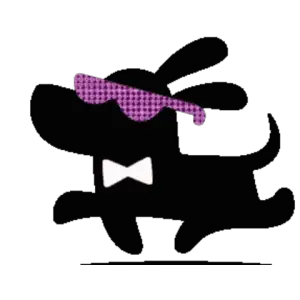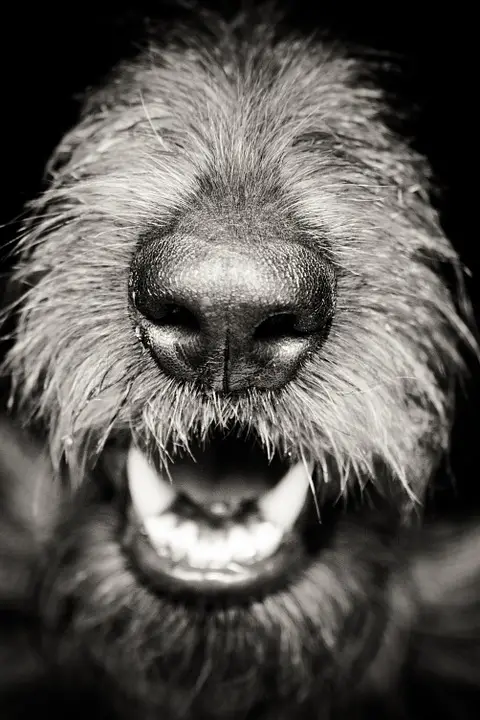As a dog parent, There are certain incidents you might encounter during your puppy joined life that would raise certain red flags in your head. One of these incidents is when you find one of your puppy’s teeth during your casual dog hair cleaning sessions of your couch or your carpet. You don’t know what is this lost tooth indicates! and your head will suddenly erupt with a million questions. Is it normal for your puppy to lose teeth?… Is it a baby tooth or an adult one ?… Do dogs teeth grow back?… Does my furry pal has a dental problem ? and so more
In this article, We will try to answer most of your questions so that you can ensure a healthy happy life for your pup to enjoy, so read on and let’s start with our first puzzle
Table of Contents
Do Dogs Teeth Grow Back or Not?
Well, that depends!!!
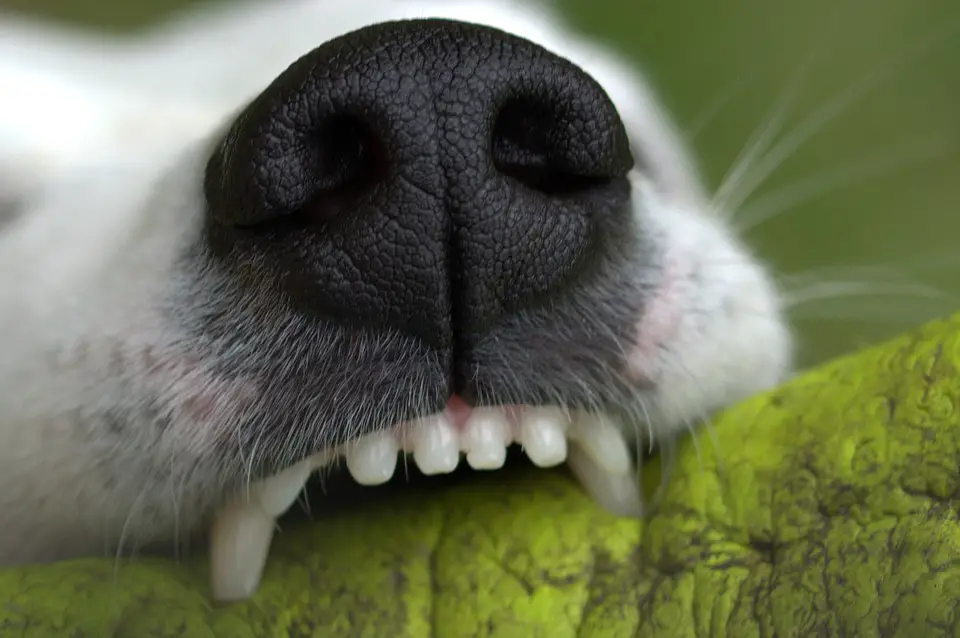
Some members of the animal kingdom can regrow their lost teeth back such as sharks, quickly replacing them with a fearsome pearly set of whites
Unfortunately, this isn’t the same with dogs. Damaged or lost adult teeth can’t grow back but it’s normal for your puppy to lose his baby teeth
and that’s gonna take us to our next question
How will I know whether it is a baby tooth or a permanent tooth?
Here is a timeline of the teething stages that your puppy goes through. This also would help you define what exactly the type of the lost tooth here, a baby one or an adult one and whether you should be worried or not!!
The Timeline of Dog Teeth
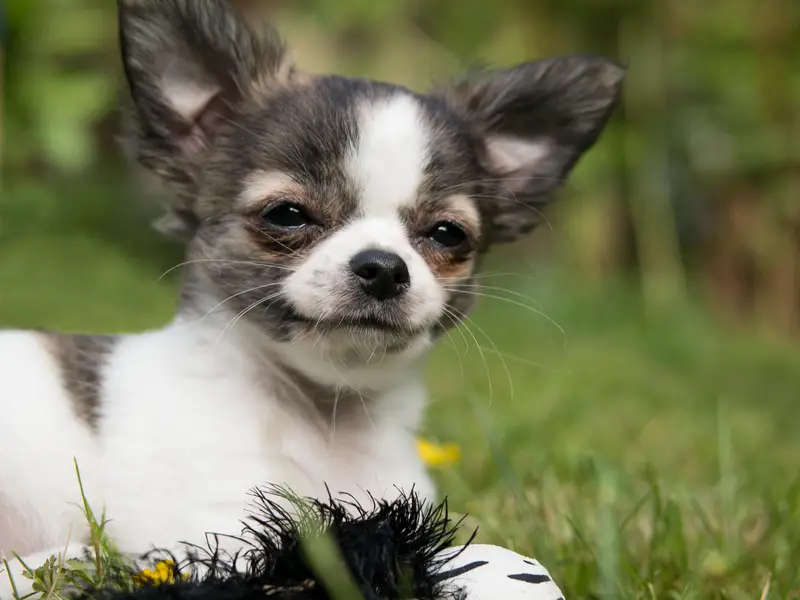
Puppies have baby teeth just like humans babies, here is a comprehensive timeline of the teething process so you will know what to expect and prepare while your furry four-legged friend goes into adulthood
Weeks 2 to 4:
During this period your puppy’s baby teeth will gradually start to show.
Weeks 5 to 6:
By the start of this period, all his baby teeth should have come in.
They should be about 28 baby teeth in total.
This is the stage when you will likely try to wean your puppy in the litter as they learn to eat hard soft moist puppy food.
Weeks 12 to 16:
losing the baby teeth. During this period, you may start to find little crumb or rice sized teeth around your puppy’s playing areas. This is an indication that your puppy is shedding his baby teeth and permanent adult teeth are emerging.
The transition from baby teeth to permanent teeth is a painful process for your puppy so he will need your help to ease it out a little bit.
You should offer your puppy safe chew toys, also check with your vet periodically to make sure everything is moving along as it should.
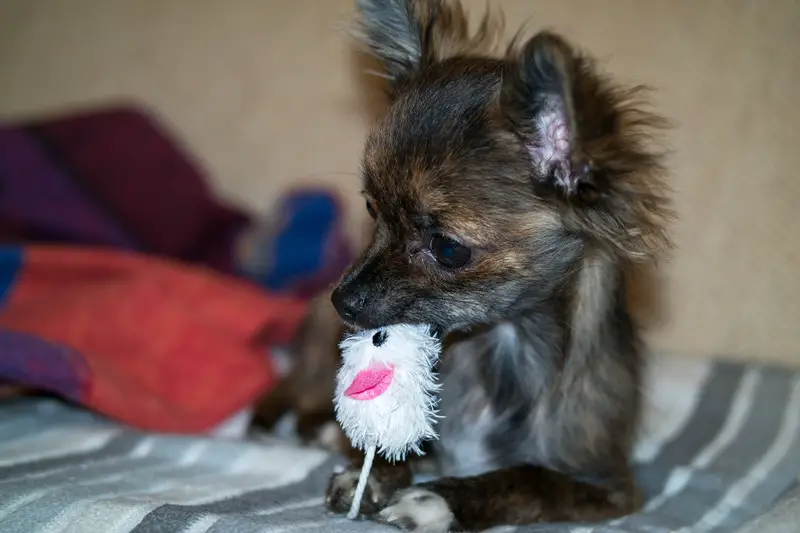
Tip.
This is also the period when your pup is highly adaptable to new experiences around him.
So take advantage of that and familiarize him with you touching his mouth outside and in.
That will help you a lot in the long run as you’ll be setting your puppy up to be able to enjoy or at least tolerate getting his teeth brushed.
Keep in mind that the remaining baby teeth still razor sharp. Beware, or he will nip you.
6 Months and Older:
By the end of the first six months of your puppy’s age, he would have lost all his baby teeth and his adult teeth should have grown in. In general, there should be a set of 42 teeth in adult dogs that’s about 10 more than adult people.
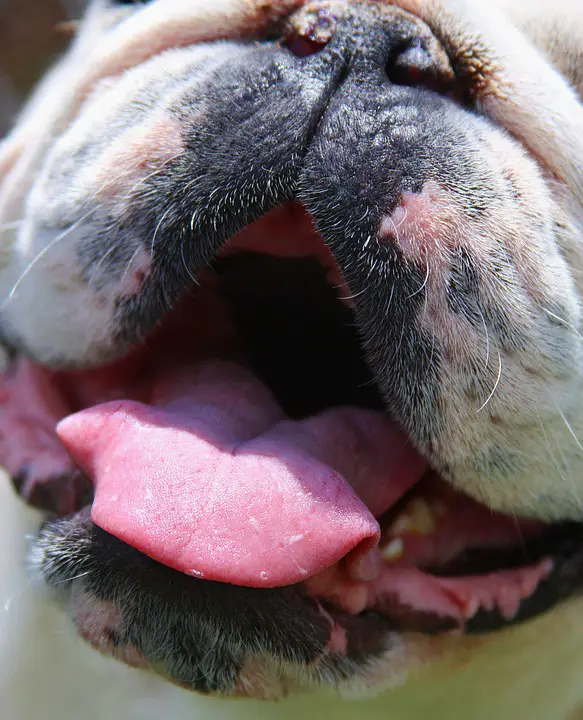
If there are still baby teeth remaining, make sure to check with your veterinarian as they may need to be removed
Well, Now after you can figure out if the lost tooth you encountered is a baby tooth or an adult one, it’s time for our next question
How to Keep my dog’s Teeth Healthy?
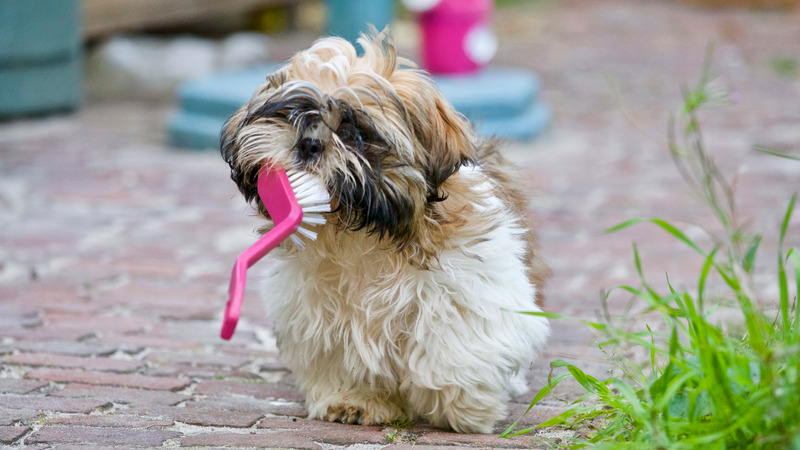
Now after your puppy has grown his full set of teeth. It’s your job now to keep them that way
Dogs don’t have the sense to use their tongue to dislodge chewed food from their teeth. They don’t care if they have a stinking breath or if they have a bad smile.
It’s on you to give them the dental care they need.
That’s why you need to establish regular teeth brushing regimen and stick to it.
For the first brushing sessions, you can gently scrub the teeth with a finger brush or gauze pad.
Later you can transition to a toothbrush and canine toothpaste.
Toothbrushes should be soft, and toothpaste must be convenient for a dog’s system.
Don’t use human Toothpaste as it contains ingredients such as fluoride that can cause serious problems to your pup if he swallows it.
Baking soda and water can also make for a good toothpaste.
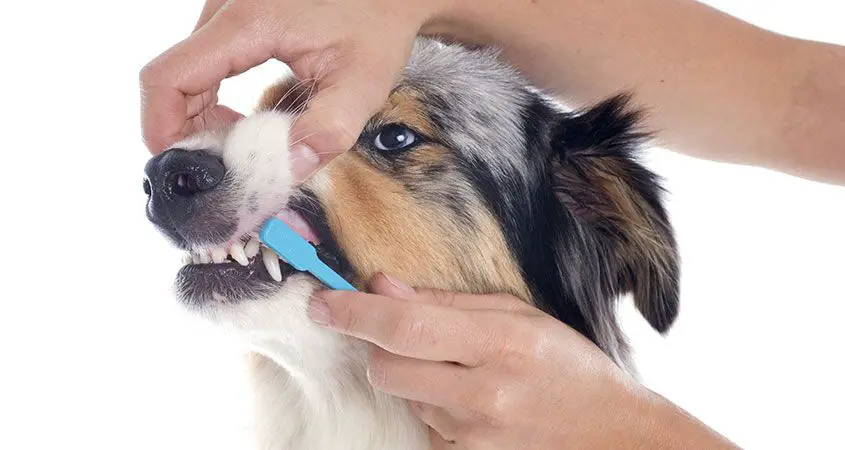
For more on how to brush your dog’s teeth check this article.
Another thing that you can do during this crucial part of your puppy’s life is to set him up for later success in life by teaching him good mouth manners
Tip.
While your puppy’s teeth are growing at this age, it’s a good time to include Bite Inhibition in his training and use certain commands such as “leave it” and “take it”.
That’s it.
I hope this has helped and answered all the questions you might have
Good luck on guiding your new puppy through these exciting first few months of his life!
And as always if you liked what you read here and want to read more check out my other articles on the consequences of bad dog teeth or Dazzling dogs with hair.
If you have any tips or questions, Feel free to tell me in the comment section
Have a nice day and Read you next time.
